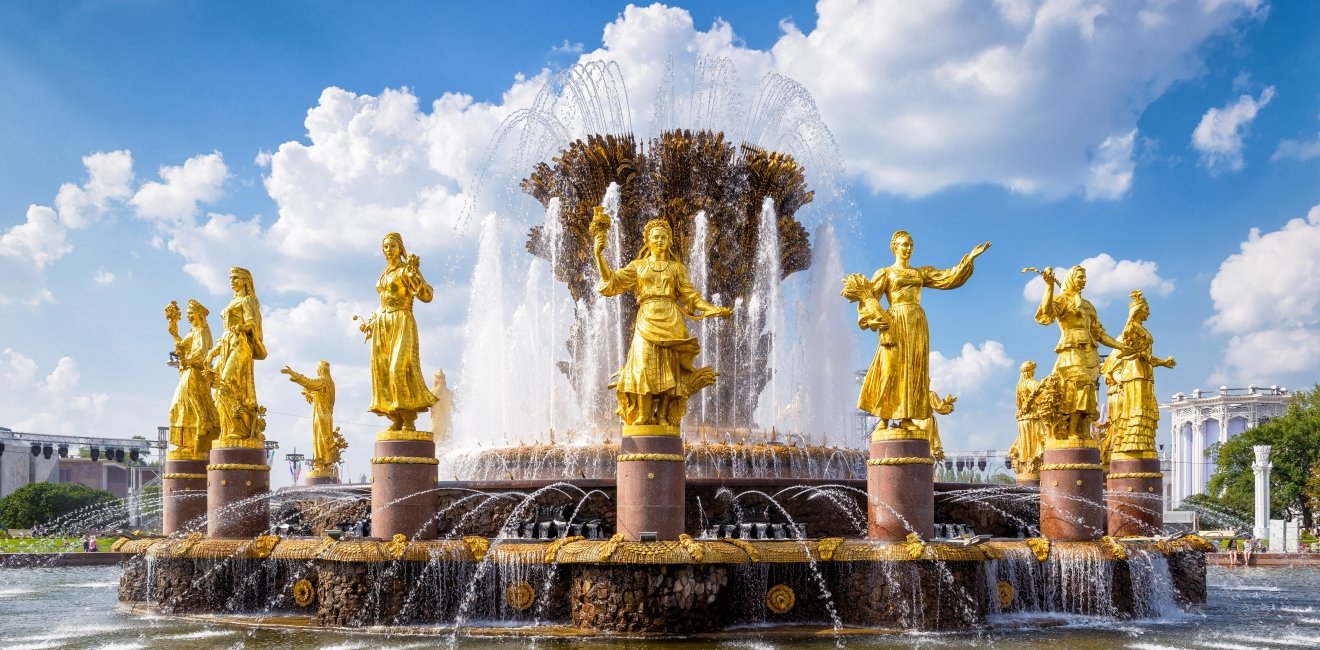
A blog of the Kennan Institute
BY LARISA DERIGLAZOVA
“The Soviet Union has ceased to exist ‘as a subject of international law and a geopolitical reality,’” the leaders of Belarus, Russia, and Ukraine declared in the Belavezh Accords they signed on December 8, 1991. Those same accords established the Commonwealth of Independent States (CIS), but the sovereignty of the individual states has remained paramount, as emphasized by the name of the looser and voluntary affiliation that grew out of the ruins of empire, the CIS.
Thirty years have passed. Entire generations of those who have no firsthand experience living in the USSR have emerged. The phrase “post-Soviet space” is losing currency even among scholars, but there is still no alternative term that would succinctly refer to the region. The former Soviet republics’ paths have diverged, in some cases dramatically. They have pursued very different strategies in their relations with Russia, the Soviet Union’s core.
Each of the fifteen independent nations that once used to be called “Soviet republics” has its own narrative of its Soviet experience. But only in Russia can pure and unadulterated nostalgia for the union be observed, in tandem with ideas about restoring it. According to the Levada Center, an independent pollster, most Russians have consistently regretted the dissolution of the USSR. In 2020, 60 percent of respondents expressed regret and 63 percent believed that the dissolution could have been avoided; 49 percent of those polled named “destruction of the USSR” among the twentieth-century events that evoked in them feelings of shame and sadness; and 75 percent believed that “the Soviet era was the best time in Russia’s national history, with a high level of prosperity and opportunities for ordinary citizens.”
According to a recent opinion poll conducted by the government-run Russian Public Opinion Research Center, the Soviet past is associated in the minds of those polled with a belief in a bright future (brought up by 21 percent of respondents), positive emotions (13 percent), childhood (11 percent), and a multinational country (10 percent). However, only 59–60 percent of young people knew what the abbreviation USSR stood for, and only 6 percent of all respondents could list all fifteen Soviet republics, while 27 percent could name none at all.
The question most frequently discussed in Russia in connection with the dissolution of the Soviet Union is whether it was inevitable. In answering that question, it also makes sense to look at who in Russia misses the USSR and what exactly they miss. In turn, the contemplation of these questions leads us to the question of whether anyone in Russia wants the restoration of the USSR, and if so, who those people might be.
Was the Collapse Inevitable?
There is a wide range of opinions regarding the reasons for the collapse, which are strongly correlated with the interlocutors’ political views. Several popular answers have been identified by the expert community:
—The USSR collapsed of its own accord because the system became obsolete. The arguments offered in support of this interpretation include the economic and political features that distinguish contemporary Russia from the USSR: a market economy of the liberal type, with a strong public sector; a minimally socialist state instead of a “big socialist state”; the ideology of state capitalism rather than state socialism. Experts sharing this view point to the economic, political, social, and ideological contradictions of the socialist system, which made the collapse inevitable.
—The USSR was destroyed from within by representatives of political and ethnic elites because they wanted to derive maximum profit from creating independent states and establishing the new balance of power within those states and in the international arena. An argument offered in support of this interpretation is the absence of substantial steps in pursuit of economic and political integration among the former Soviet republics. Experts sharing this view bring up the inefficient approach to interethnic relations in the USSR and certain contradictions that had accumulated within the multinational country and could not be resolved within the existing system.
—The USSR was destroyed from the outside, a victim of the arms race imposed on it by the West and of the subversive activities of Western intelligence, which used the union’s domestic opposition to undermine the Soviet system. This claim is usually defended by pointing to ex post factors, such as the military and political weakening of post-Soviet Russia, the expansion of NATO, and the confrontational relationship Russia now has with the West. President Vladimir Putin is often seen as a supporter of this view because he famously referred to the dissolution of the Soviet Union as “a major geopolitical disaster of the century.” Many conspiracy theorists also promote this viewpoint.
Every anniversary of the Soviet collapse inspires new research on the topic by Russian and international authors, who tend to identify an entire complex of reasons for that historical event. Many of them, for instance Stephen Cohen, Dmitry Bulanin, and Vladislav Zubok, have a sober approach to the dissolution of the USSR, even if they agree that subsequent events were rather dramatic, even tragic. Most experts tend to believe that the dissolution of the USSR was a natural process that could not be prevented and that the Soviet collapse was the result of internal contradictions.
Who Misses the USSR, and Why?
Older generations idealize the Soviet Union, political leaders create myths around it, younger people nurture an improbably rosy picture of it. For the senior generation, the Soviet era remains a time when things were stable, predictable, and comprehensible. The Soviet collapse led to a complete social and economic reordering, accompanied by a decline in social status and living standards for many.
The post-Soviet economic crisis drastically increased social deprivation and mortality and suicide rates. Nostalgia for the USSR is not just an emotion, it also represents a longing for a social safety net, truly universal health care, free education, a reliable pension system, and family-oriented policies. Today’s Russian social welfare system is transitional and patchy, and does not solve many of the country’s social problems.
Russian political parties exploit the idealized view of the Soviet past, often in selective and contradictory ways. The Russian Communist Party presents the Soviet past as a time of prosperity and blames “criminal” politicians, including the Soviet Union’s last leader, Mikhail Gorbachev, for its demise. The ruling United Russia party seeks to connect the USSR’s great power status with an idea of Russia’s glorious past. The social scientist Ilya Yablokov believes that nostalgia for the USSR is the foundation of Russia’s state ideology. Clearly, neither the Communist Party nor United Russia strives to literally restore the Soviet Union. Rather, this is a convenient ideological reference point that allows them to manipulate the sentiments of the older electorate in pursuit of their political goals.
On August 18, 2021, the independent network TV Rain hosted an event titled “The Thirty-Year-Olds.” The meeting brought together fifteen people in their late twenties and early thirties with roots in the former Soviet republics. Most of the participants treated the Soviet Union as a past long gone, about which they had vague, often contradictory ideas. The present was more important for all of the participants than the Soviet past. The collapse itself evoked no regrets, but some of the speakers regretted the absence of borders within the Soviet space and were concerned by the hostility that exists between some of the neighboring republics. When asked directly, none of the participants expressed a wish to restore the USSR.
Many in the expert community believe that attitudes toward the Soviet Union are often defined by the character of the former Soviet countries’ relations with Russia. In Ukraine, political considerations determine a generally negative attitude toward the Soviet Union, and the Soviet past is a negative reference point. In Armenia, young people do not understand what the USSR was and rarely know its history, while older generations’ nostalgia for it could be explained by the post-Soviet decline in living standards. In Kyrgyzstan, there is a generally positive perception of the Soviet experience because during the Soviet period, the country underwent a major economic and societal modernization, which allowed its rapid development in the twentieth century. However, people in Kyrgyzstan are critical of today’s Russia, where they see xenophobia and condescension toward people from Central Asia. These views were expressed during a recent discussion organized by the Russian Council on Foreign and Defense Policy and titled “What Are We Yearning For? How the USSR Is Remembered Thirty Years Later.”
Since the signing of the Belavezh Accords thirty years ago, the number of people who remember the Soviet Union well has shrunk and the image of the USSR has become more abstract—but still retains some power. For Russian citizens and politicians, as opposed to citizens of most other former member states, the Soviet Union remains a source of memory and reflection about the ideals and goals for which they strive today.
The opinions expressed in this article are those solely of the authors and do not reflect the views of the Kennan Institute.
Author

Professor, Department of World Politics; Head, Centre for European Studies; and Head, Master Degree Program on EU Studies, Tomsk State University, Russia

Kennan Institute
After more than 50 years as a vital part of the Wilson Center legacy, the Kennan Institute has become an independent think tank. You can find the current website for the Kennan Institute at kennaninstitute.org. Please look for future announcements about partnership activities between the Wilson Center and the Kennan Institute at Wilson Center Press Room. The Wilson Center is proud of its historic connection to the Kennan Institute and looks forward to supporting its activities as an independent center of knowledge. The Kennan Institute is committed to improving American understanding of Russia, Ukraine, Central Asia, the South Caucasus, and the surrounding region through research and exchange. Read more

Explore More in The Russia File
Browse The Russia File
Chechnya as a Model of Modern Russia

Russia’s Indigenous Communities and the War in Ukraine

Gas and Power in a Changing US–Russia Relationship

